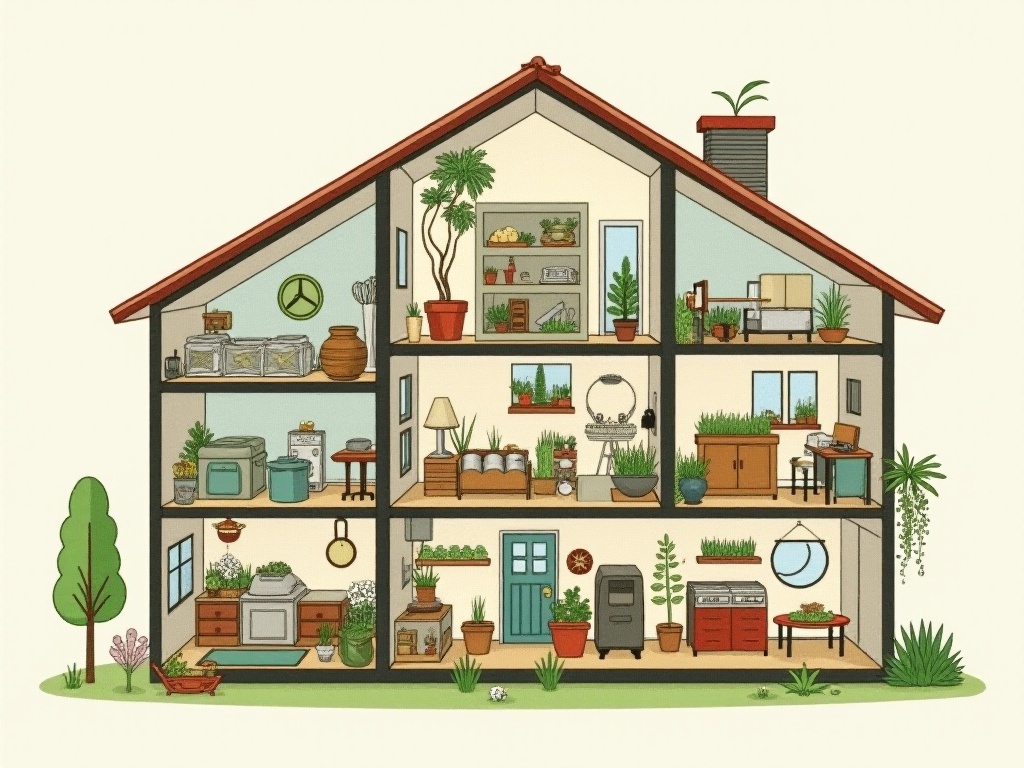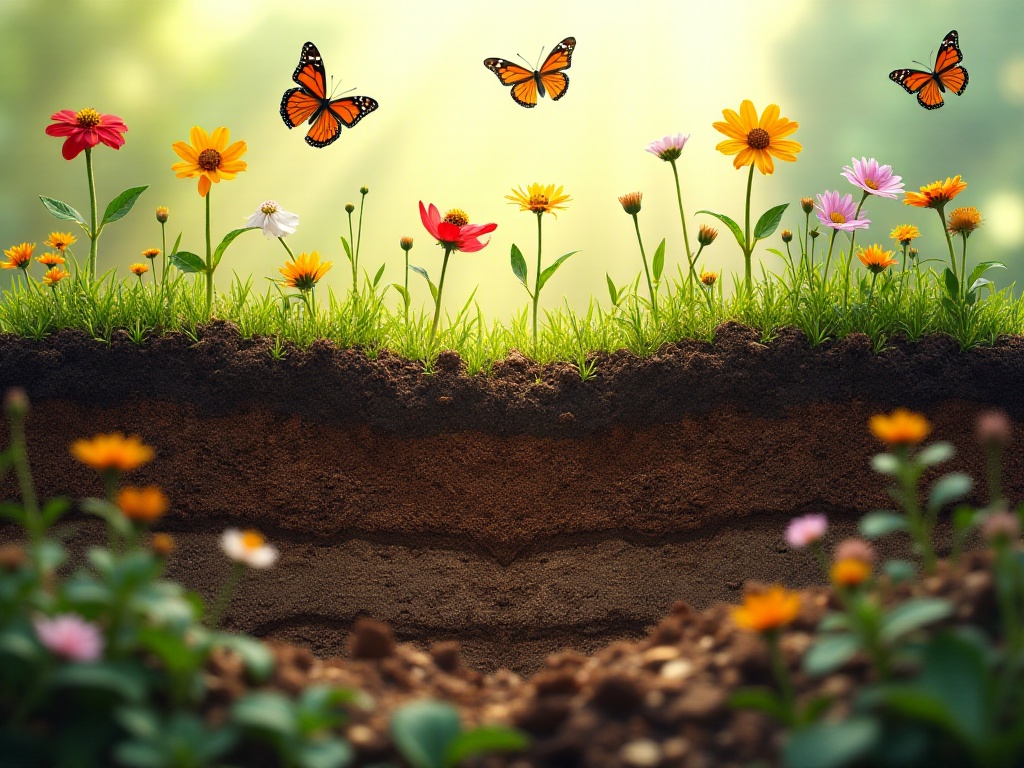
A New Understanding
Every time I open my trash can at home and see the mountain of packaging boxes, delivery boxes, disposable utensils, and spoiled ingredients, I feel a wave of guilt. This waste not only takes up a lot of space and is troublesome to dispose of, but more importantly, it causes irreversible damage to the environment.
I remember once when cleaning my room, I filled two large bags just with packaging boxes, and delivery boxes piled up in a corner of the balcony. Looking at these "mountains of trash," I began to seriously think: Does life really have to generate so much waste? After in-depth research and practice, I discovered that through some small changes, we can live a more environmentally friendly and relaxed life.
Zero-waste living doesn't mean producing absolutely no waste, but rather advocating for reducing unnecessary waste whenever possible. By re-examining every aspect of our daily lives, we can find more environmentally friendly alternatives. This not only reduces the burden on Earth but also makes our lives more organized and meaningful.
A New Shopping Mindset
I still vividly remember the first time I brought glass jars to a bulk store. I felt very self-conscious, worried that the store owner would give me strange looks. However, to my surprise, not only did the owner not find it strange, but they praised my environmental awareness and enthusiastically introduced many bulk products.
Looking back now, that shyness was really unnecessary. Bulk shopping not only reduces packaging waste but is also economically beneficial. For example, bulk rice is usually 15-20% cheaper than packaged rice. Moreover, when you neatly arrange ingredients in glass jars, it not only looks pleasing to the eye but also extends the shelf life of the ingredients.
My kitchen is now filled with glass jars of various sizes containing grains, dried goods, and seasonings. Each jar is labeled with the ingredient name and purchase date. This makes it convenient to use and prevents ingredients from expiring.
Through bulk shopping, I've also met many like-minded friends. We often exchange shopping tips and share our discoveries of good stores. Sometimes we organize group purchases, which not only gets us better prices but also reduces resource consumption during transportation.
Saying Goodbye to Disposables
Speaking of disposable items, they're one of the biggest contradictions in modern life. While they bring convenience, they come at a huge environmental cost. In the past, I would casually take disposable chopsticks and straws provided by restaurants, use them once and throw them away, never thinking about the environmental impact of these seemingly insignificant actions.
Now, my bag always contains my "magic trio": an elegant bamboo straw, portable stainless steel cutlery, and a thermos. At first, I would often forget to bring them, sometimes having to go back halfway to get them. But after persisting for a while, these items became as essential as my wallet and phone when leaving the house.
These reusable alternatives are not only environmentally friendly but also offer better quality and user experience than disposable items. Bamboo straws don't have the strange taste of plastic straws, and stainless steel cutlery is more stable than disposable plastic utensils. Most importantly, using these items makes me feel like I'm contributing to environmental protection.
I remember once at a coffee shop, when I took out my own cup for coffee, I surprisingly received a discount. It turns out many businesses support environmental actions, we just hadn't noticed before. Later I learned that many chain coffee shops have bring-your-own-cup discount policies, some offering discounts of 2-3 yuan.
To make it easier to carry these eco-friendly items, I bought a compact storage pouch. This pouch can hold my "magic trio" as well as some simple snacks and tissues. Now whenever I go out, I just need to bring this pouch to handle various dining scenarios.
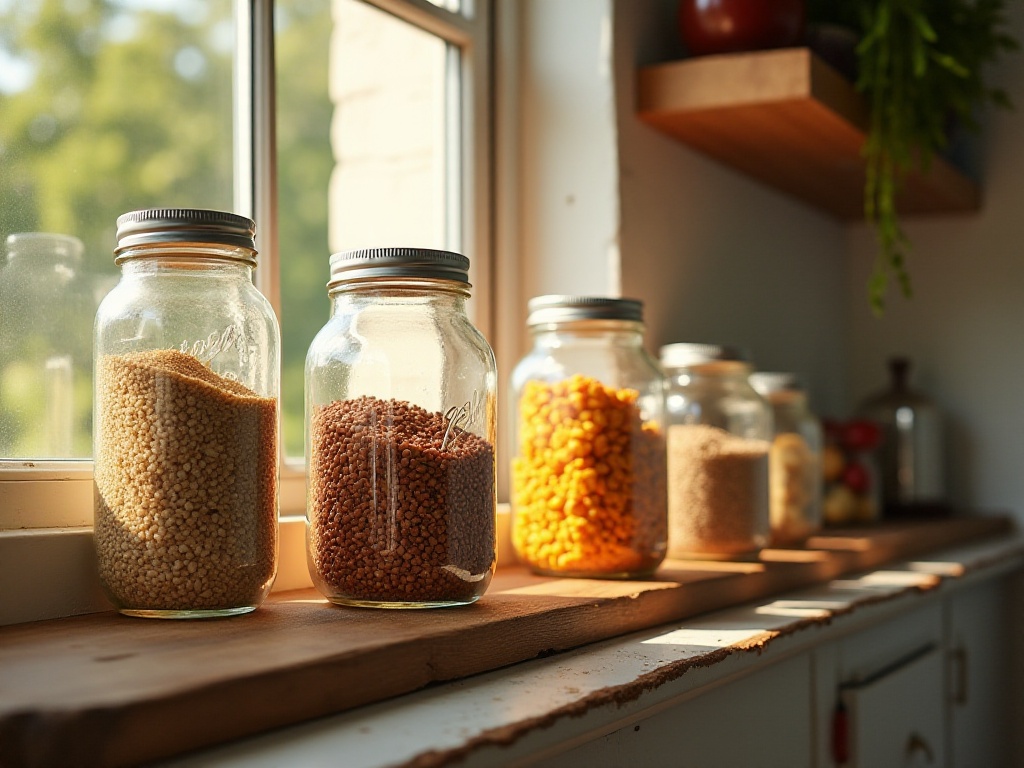
Kitchen Revolution
The kitchen is where households generate the most waste, but it's also the easiest area to achieve zero waste. When I first started transforming my kitchen, the biggest challenge was finding alternatives to plastic wrap and bags. Then I discovered beeswax wraps, which not only perfectly replace plastic wrap but also provide better breathability, keeping ingredients fresher.
While beeswax wraps have a higher initial cost, they last long and can be washed and reused repeatedly. I now have several beeswax wraps of different sizes - large ones for wrapping watermelons and bread, small ones for leftover cut fruits or sandwiches.
Besides beeswax wraps, I also prepared various sizes of sealed glass containers and cloth bags. Glass containers are mainly used for storing leftovers, as their transparency allows me to monitor the food condition and prevent spoilage through forgetfulness. Cloth bags perfectly replace the plastic bags I used to use for shopping. I choose different fabric bags for different ingredients - for example, cotton-linen bags for bread to maintain freshness.
I've also gained new insights into kitchen waste management. I used to think vegetable leaves and fruit peels could only be thrown away, but now I realize they're excellent composting materials. I created a small composting corner on my balcony, where I process kitchen waste in a compost bin. After fermentation, it becomes organic fertilizer for plants.
Most delightfully, through these changes, my kitchen has become more organized. Drawers that used to be crammed with various packaging bags are now spacious, storing neat glass containers and fabric bags that are both practical and pleasing to the eye. Every time I open the cupboard and see this scene, my mood improves significantly.
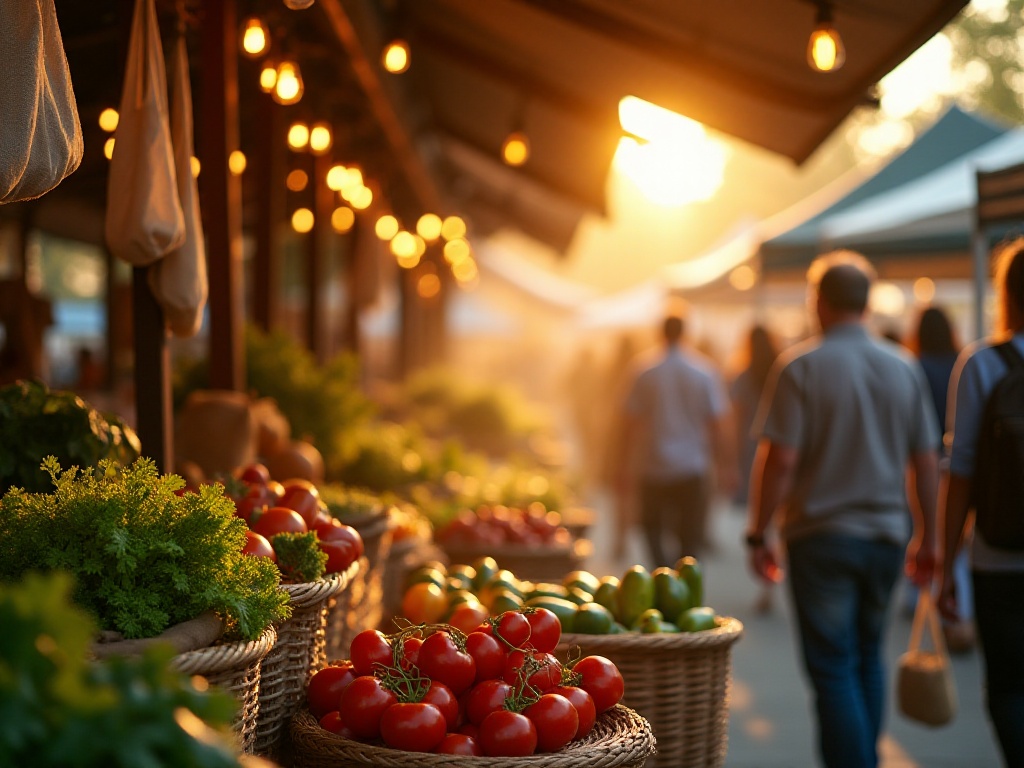
Local Consumption Perspective
In recent years, I've increasingly preferred shopping at the local farmers' market. Unlike overly packaged produce in supermarkets, farmers' market products are mostly sold in bulk, allowing you to buy exactly what you need - both fresh and eco-friendly.
Every weekend morning, I bring my shopping bags to the market. The vendors are very friendly and often introduce the freshest seasonal ingredients. Through conversations with them, I've learned not only about ingredient origins and growing cycles but also many cooking tips.
Choosing local ingredients ensures freshness and greatly reduces carbon emissions from transportation. I used to think imported fruits were better, but now I understand that local seasonal fruits not only better suit the local climate but are also more affordable. Moreover, supporting local farmers contributes to regional economic development.
I remember meeting a lady who grows organic vegetables at the market. She told me her vegetable garden was in the city suburbs and welcomed us to visit. I later visited her garden and saw firsthand how vegetables are grown, giving me a deeper understanding of food sources. Since then, I've become more committed to supporting local agriculture.
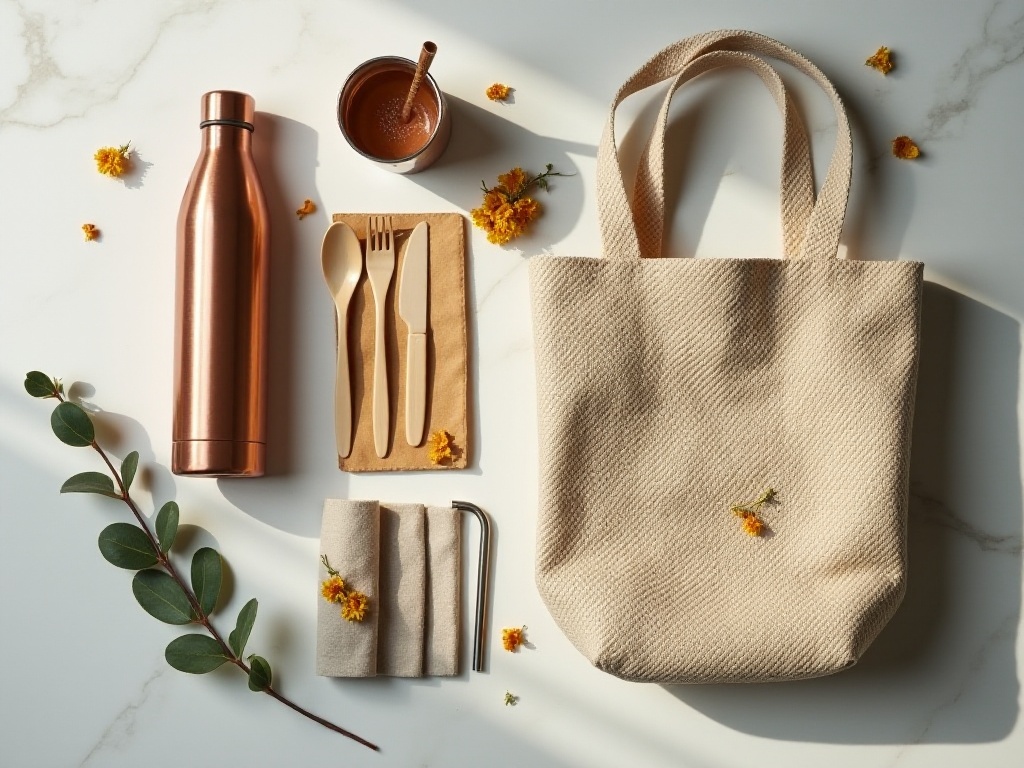
Recycling and Regeneration
While waste sorting might seem troublesome to many, once you truly understand its significance, you'll find it's actually quite interesting. My household now has a complete waste sorting system.
First is kitchen waste, which makes excellent composting material. I collect fruit peels, vegetable leaves, and other organic waste for the compost bin on my balcony. After several months of fermentation, this "garbage" becomes nutrient-rich organic fertilizer, perfect for nurturing balcony plants.
Second are recyclables, which need further sorting. Paper is neatly folded and stored in dedicated boxes, while glass and metal go into separate containers. At the end of each month, I take these recyclables to nearby recycling stations. Interestingly, some stations offer cash returns based on the weight of recyclables.
As for truly non-recyclable waste, after proper sorting, the amount is surprisingly small. The trash bin that used to need emptying several times a week now only needs emptying once a week. This change has made me deeply realize that reducing waste isn't difficult with the right methods.
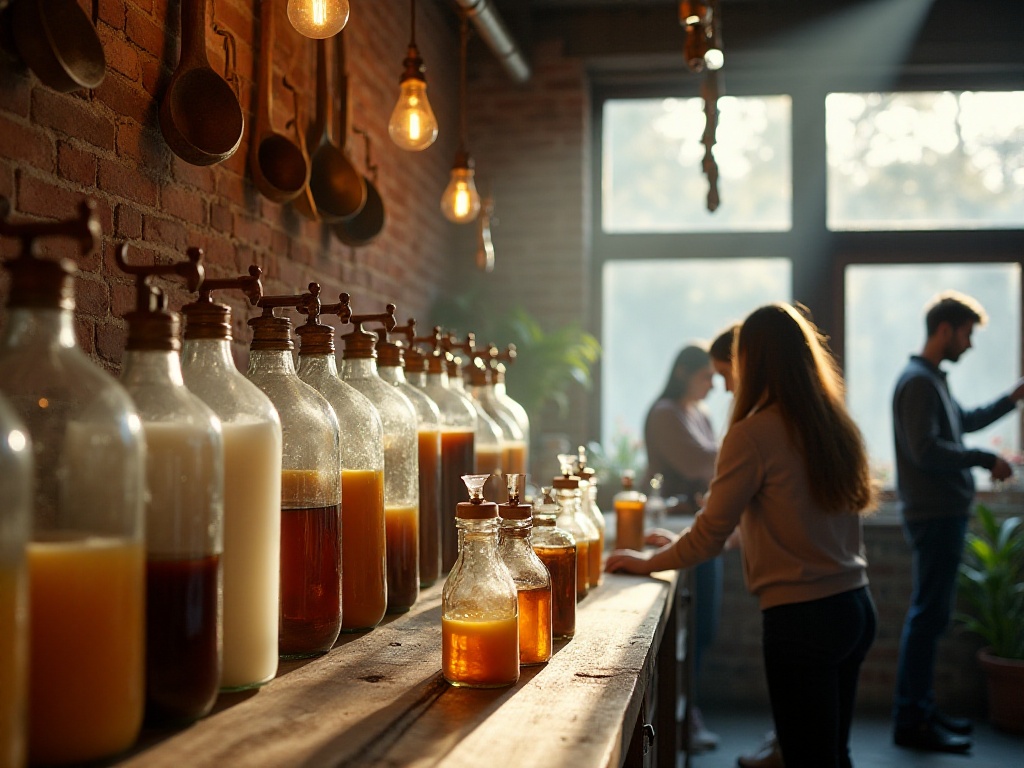
Technology Assistance
In this digital age, technology is helping us achieve zero-waste living in various ways. I now have several particularly useful apps on my phone that play important roles in my zero-waste journey.
For example, there's an app specifically for tracking ingredient expiration dates. I just need to scan barcodes or manually input information when purchasing ingredients, and the app reminds me when they're approaching expiration. This greatly reduces food waste. Another app helps me find nearby repair shops, whether for shoes or appliances, quickly locating professional repairers.
Social media also provides many inspirations for zero-waste living. I often exchange experiences with other zero-waste practitioners in environmental communities and learn new eco-friendly techniques. Sometimes we organize offline activities like exchanging idle items or hosting environmental DIY workshops.
With the assistance of these new technologies, my zero-waste life has become easier and more interesting. They not only help me save time and money but also help me meet many like-minded friends.
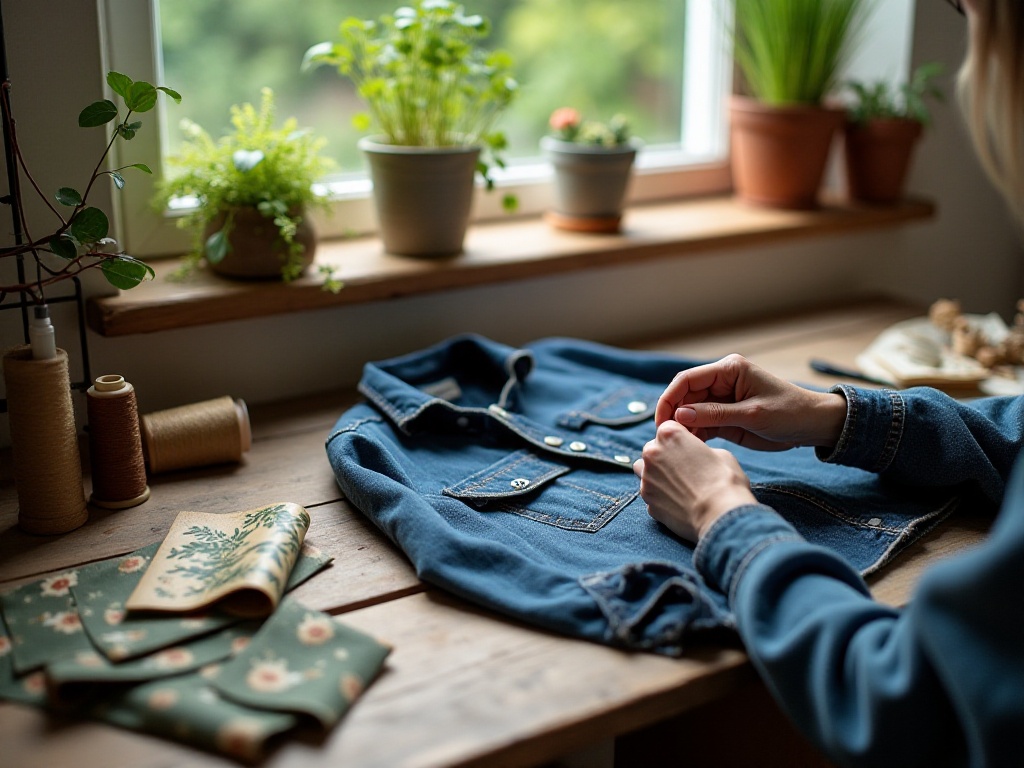
Insights Gained
During my zero-waste journey, my biggest realization is that change doesn't need to happen overnight - what's important is persistence. Everyone can start with the simplest things, like carrying a water bottle or bringing their own shopping bags.
In this process, I've experienced failures and setbacks. Sometimes I forget to bring reusable utensils, sometimes I can't resist buying over-packaged goods. But that's okay - what matters is adjusting and moving forward.
Zero-waste living isn't just about environmental protection; it's a transformation in lifestyle attitude. When you start paying attention to every detail of daily life, you'll find that life can be simpler, more organized, and more meaningful.
By reducing unnecessary consumption and waste, we not only contribute to environmental protection but also make our lives more abundant. True abundance isn't about how much we own, but how wisely we use what we have.
Now, whenever I open my neat cupboards and see everything organized; whenever I harvest vegetables I've grown on my balcony; whenever I use compost-turned-fertilizer on my plants, I feel immensely satisfied. This satisfaction comes not only from physical orderliness but also from inner peace and fulfillment.
If you want to start a zero-waste life, try beginning with one small habit. Gradually, you'll discover this isn't just a lifestyle but a choice that makes life more beautiful. Let's act together, making changes for ourselves, our families, and this beautiful planet.
Next
From Zero to One: A Comprehensive Guide to Building the Perfect Healthy Lifestyle at Home
A comprehensive guide to healthy lifestyle and zero waste living, covering essential health aspects like weight management, balanced nutrition, and exercise routines, along with waste management based on 5R principles and sustainable living practices
Understanding Healthy Living in 10 Minutes: From Zero Waste to Balanced Nutrition, Improve Your Quality of Life by 300%
A comprehensive guide to healthy lifestyle and zero waste living, covering essential aspects of balanced nutrition, exercise routines, weight management, and environmental practices including the 5R principle and recycling for sustainable living
Health Living Guide for Post-90s Workers: 15 Key Habits for Daily Energy
A comprehensive guide to healthy living covering essential aspects of diet, nutrition, exercise, sleep patterns, and mental wellness, offering practical advice for developing sustainable healthy habits and improving overall quality of life
Next
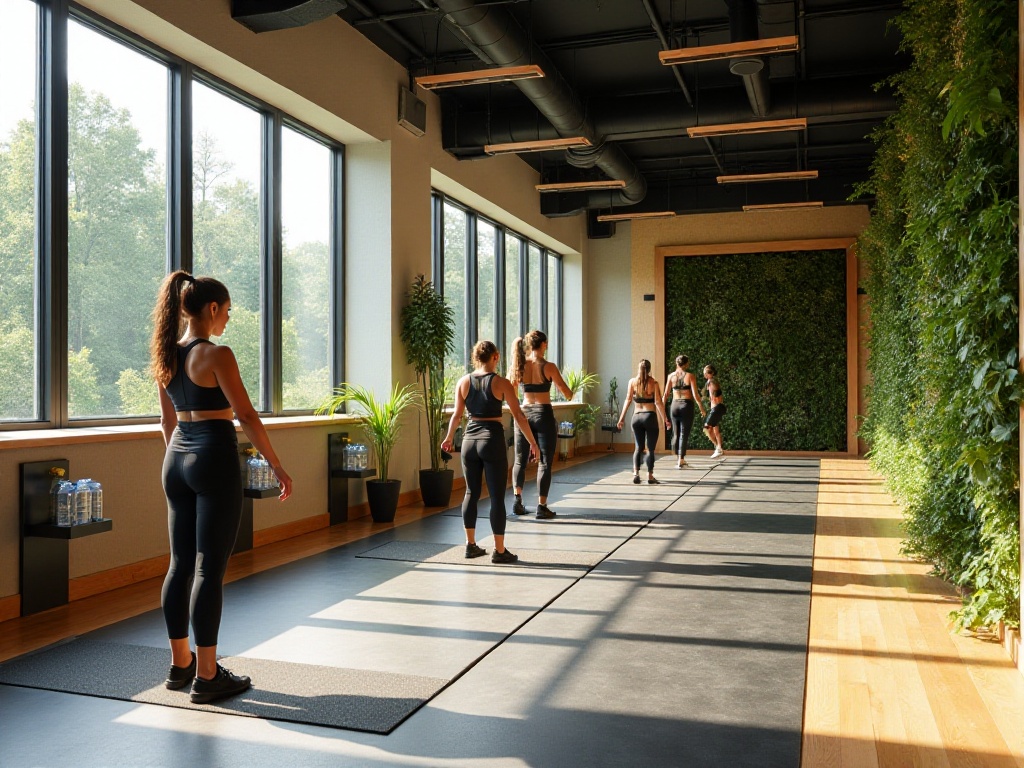
From Zero to One: A Comprehensive Guide to Building the Perfect Healthy Lifestyle at Home
A comprehensive guide to healthy lifestyle and zero waste living, covering essential health aspects like weight management, balanced nutrition, and exercise routines, along with waste management based on 5R principles and sustainable living practices
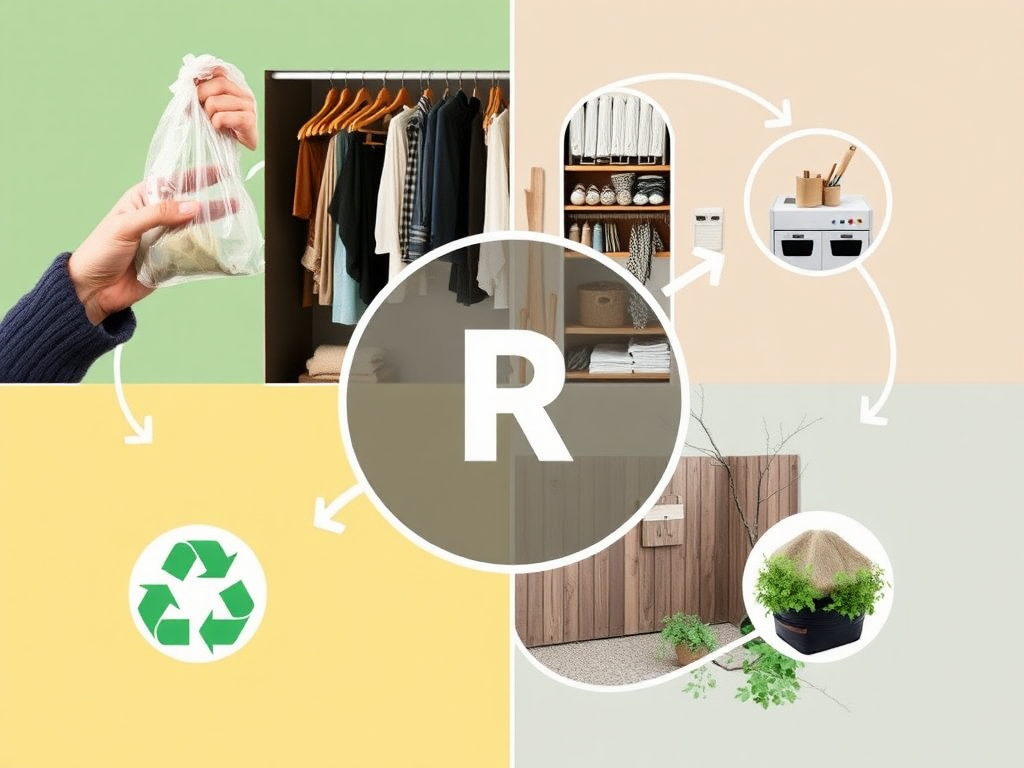
Understanding Healthy Living in 10 Minutes: From Zero Waste to Balanced Nutrition, Improve Your Quality of Life by 300%
A comprehensive guide to healthy lifestyle and zero waste living, covering essential aspects of balanced nutrition, exercise routines, weight management, and environmental practices including the 5R principle and recycling for sustainable living
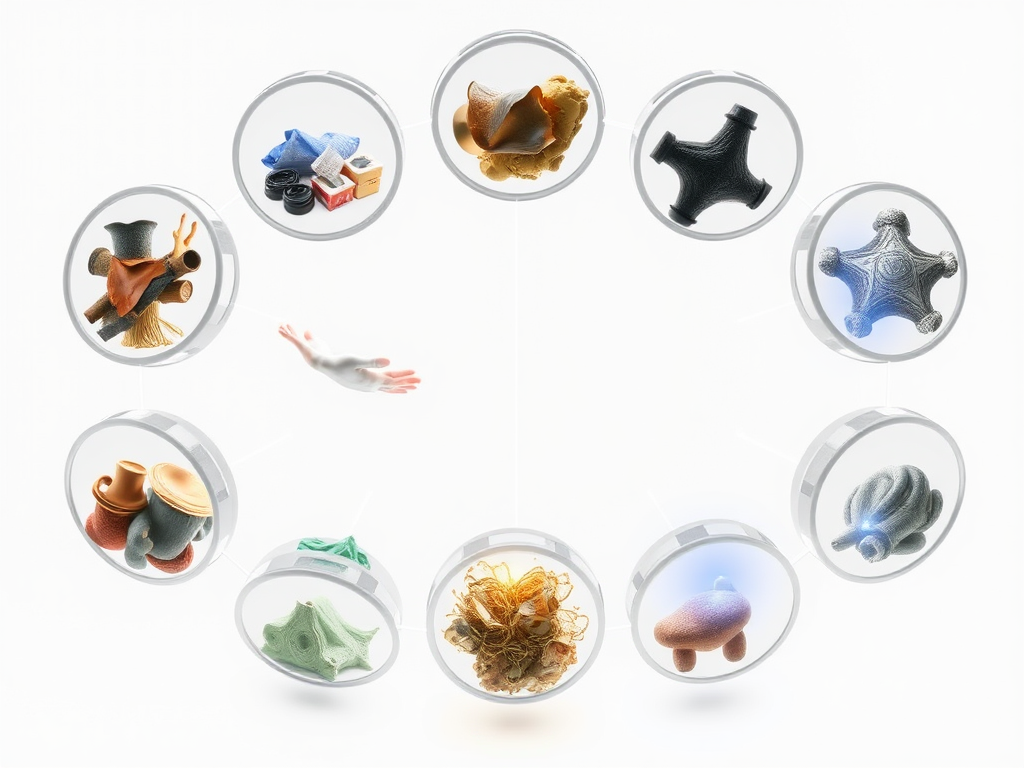
Health Living Guide for Post-90s Workers: 15 Key Habits for Daily Energy
A comprehensive guide to healthy living covering essential aspects of diet, nutrition, exercise, sleep patterns, and mental wellness, offering practical advice for developing sustainable healthy habits and improving overall quality of life

